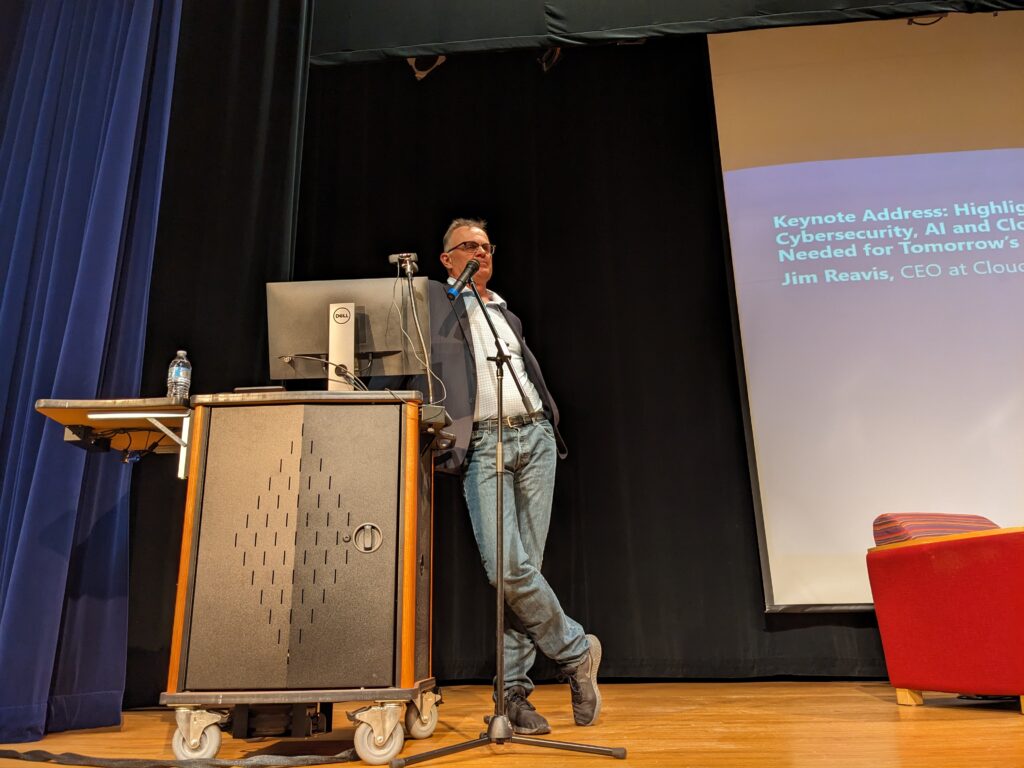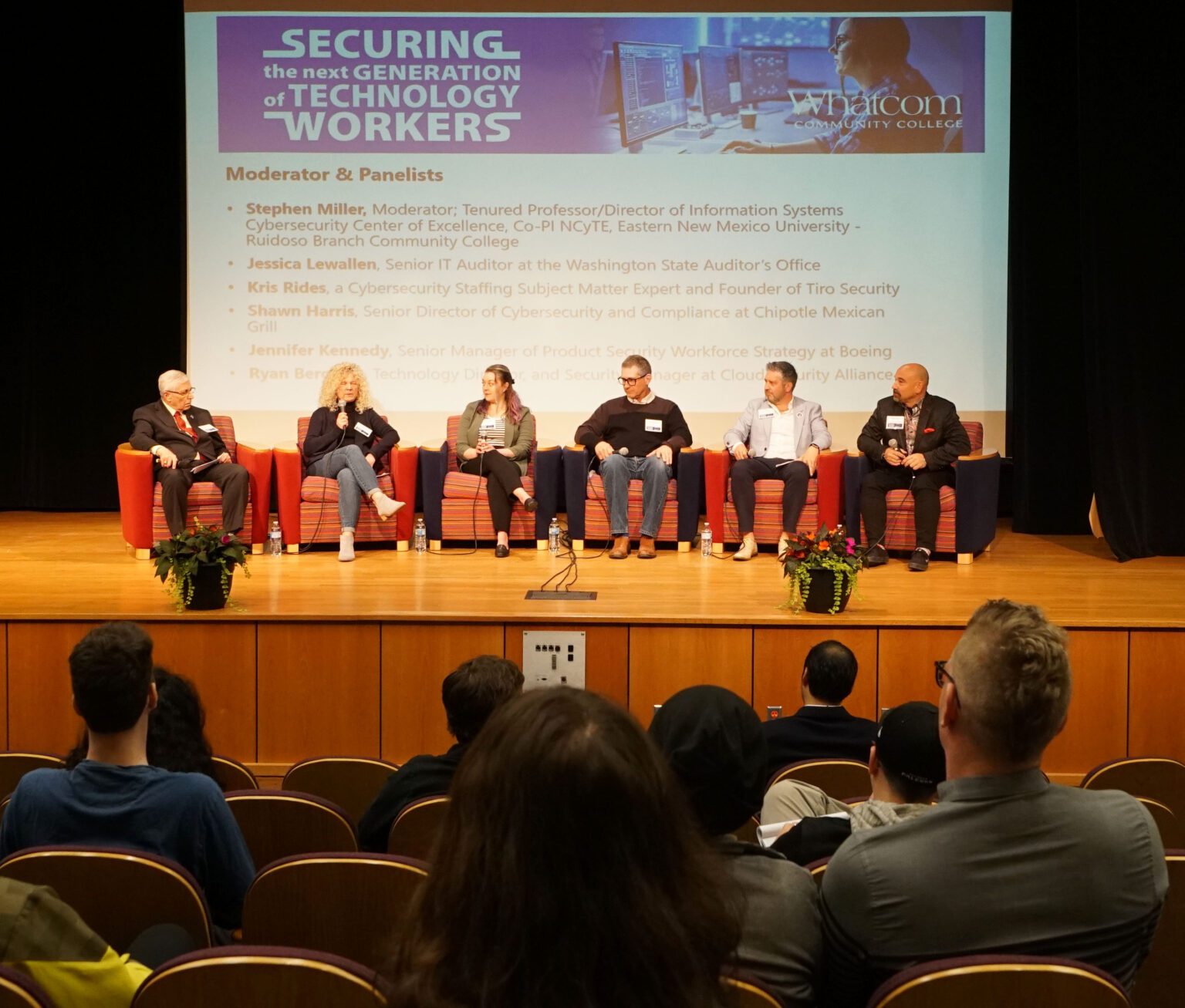Whatcom County is a national hotbed for cybersecurity — even if many in the region who are outside of the specialized profession don’t know that.
The prominent role of Bellingham was on full display during an event on Wednesday, April 24, at Whatcom Community College, the location of three different, and interlocking, state and national cybersecurity education centers.
The event, “Securing the Next Generation of Technology Workers,” drew about 100 employers, educators and students to hear both about the growing demand for cybersecurity professionals, as well as what industry can do to support and attract students graduating from the cybersecurity programs at WCC.
“Currently cybersecurity is really in high demand here in the state of Washington. There’s over 7,500 unfilled jobs,” said Brent Lundstrom, director of the Washington State Cybersecurity Center of Excellence (CCoE) located at WCC and the organization behind the event. “It’s our job here in the Center of Excellence to work with industry to understand what their needs are from our graduates, and try to align the curriculum to make sure that it fits the needs for what industry’s looking for.”
To date, WCC said its two-year cybersecurity-related associate degree programs have graduated 544 students since 2013 and have an estimated 181 currently enrolled. A newer four-year bachelor’s degree program has graduated 66 students since 2018 and has an estimated 48 students now enrolled.
The community college’s emphasis on cybersecurity education also has led it to be not just the home of the state’s CCoE cybersecurity information hub, but also the National Science Foundation-funded National Cybersecurity Training & Education Center (NCyTE), and the CAE Candidates National Center, which supports other colleges and universities looking to be recognized for excellence in cybersecurity education.
“In 2021 the State Board for Community & Technical Colleges determined that there’s such a shortage for cybersecurity professionals, it’s actually putting our state at risk,” Lundstrom said. “Out of 34 community colleges across Washington state, they selected Whatcom to host its Cybersecurity Center of Excellence. I think that really is a tribute to the work that Whatcom has done here in the state as well as on a national level.”
AI driving demand
Demand for cybersecurity professionals is rapidly rising in part due to the rise of artificial intelligence. Keynote speaker Jim Reavis, CEO of the nonprofit Cloud Security Alliance, said generative AI tools are making it easier for bad actors to create potentially more effective phishing emails and to rapidly scan systems for vulnerabilities.
But he also said generative AI could help cybersecurity companies develop a new set of tools to combat the attacks. And that, he told students and faculty in the audience, will require better and broader knowledge.
“The cybersecurity toolkit is going to be AI, but your skill set, and how you apply that, is going to have to be pretty immense,” Reavis said.

Lundstrom said other factors leading to increased workforce demand are regulation and policy issues surrounding concerns like privacy, and organizations’ move to a “cloud-first” infrastructure to store data and do business.
Businesses should stay involved
Attendees at the afternoon event included representatives of both government and industry, such as the Port of Bellingham, Bellingham Regional Chamber of Commerce, Whatcom Transit Authority, City of Ferndale, Janicki, Phillips 66 and Oracle.
A panel of cybersecurity experts advised the companies to stay engaged.
“You need to really be building those relationships up” with cybersecurity programs, said Kris Rides, co-founder and CEO of TIRO Security, for “access to the best students. You want the students to come ready to help you on day one.”
And advice for the students?
“When you hear about a new technology, become an expert in that because all of the information is really out there and available,” said Shawn Harris, deputy chief information security officer at Chipotle Mexican Grill. “Every single person on my team, they have to stay current with new technologies because you’re always learning in this field.”
Lundstrom, noting panel speakers also came from Boeing, the Washington State Auditor’s Office and the Cloud Security Alliance, observed what may be another sign of the success of the WCC cybersecurity programs.
“We’ve got some panelists,” he said, “that are former students that are now panelists.”
Frank Catalano writes about business and related topics for CDN; reach him at frankcatalano@cascadiadaily.com.




